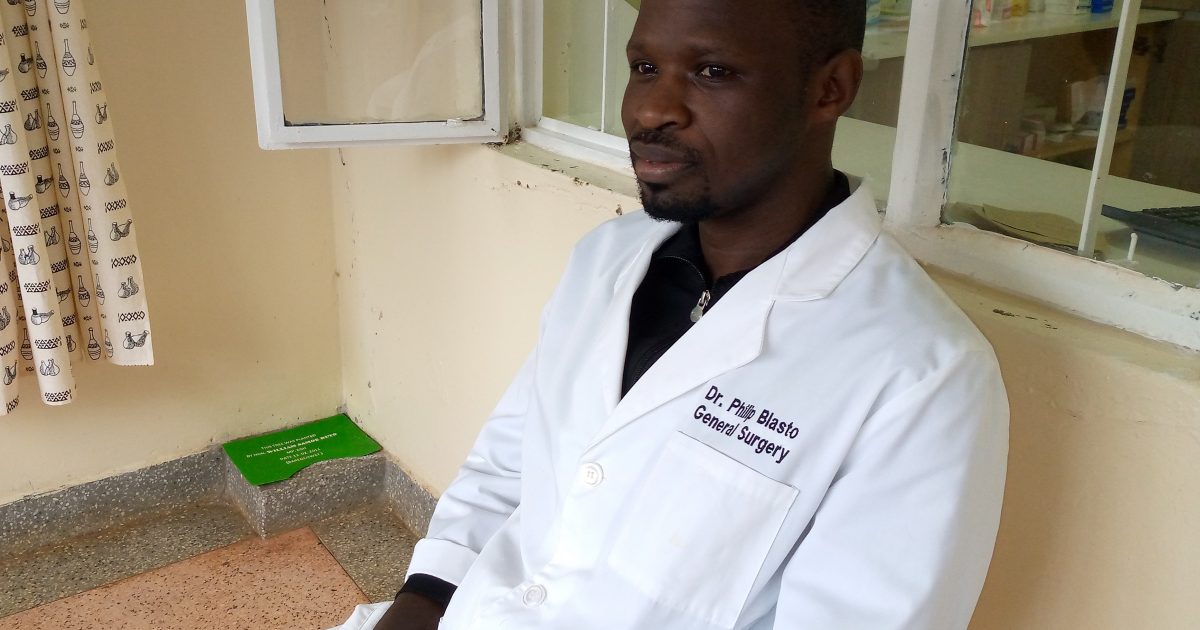Kericho residents have been urged to avoid late diagnosis of thyroid gland symptoms as a preventive measure against life threatening complications.
The thyroid gland is located in the front of the neck below the “Adam’s apple” and is an essential organ for the production of thyroid hormones and controls many vital functions of the body.
A resident surgeon at the AIC Litein Kericho Annex Clinic Dr. Philip Blasto has advised residents to recognize symptoms to guard against long term health problems such as loss of speech, surgery complications and thyroid cancer.
“Thyroid disease can sometimes lead to enlargement of the thyroid gland in the neck which can cause symptoms that are directly related to the increase in size of the thyroid gland known as goiter. Goiter is a swelling of the thyroid gland that causes a lump in the front of the neck. If the goiter has been there for ten to fifteen years, this can lead to complications during surgery on the nerve that allows you to speak, collapse of the trachea after surgery for those patients who will require opening of the chest cavity as the goiter is way too enlarged, as well as those patients who develop convulsions following their long stay after the procedure and also goiter cells may become cancerous after a period of time,” said Dr. Blasto.
In an interview with KNA during a thyroid clinic held at the medical facility, Dr. Blasto agitated for personal health checks for early diagnosis of the disease which could be treated quickly, adding that those whose age had advanced with the disease would not undergo any procedure as they risked developing complications.
“For a big thyroid gland, the risk of developing complications during surgery is very high. Some patients come at a time when their age is well advanced so if they are like 75 to 80 years of age, we are unable to offer any surgery. Early detection gives the patient the best chance for getting the right treatment quickly. One can check for the goiter by standing next to a mirror and drinking some water and when you notice something prominent coming in as you swallow the water, then probably that is a goiter. The other is when people inform you that your neck seems to look swollen,” the doctor noted.
Dr. Blasto explained that those patients who undergo surgery often experience pain including difficulty in swallowing, speaking or breathing.
The medic revealed that the classic symptoms patients projected differed depending on the levels of thyroid gland hormones released all which were indicative of the presence of a thyroid gland disease.
“There are two general classes of symptoms of patients who have high levels of thyroid gland hormonal production termed as toxic or hyperthyroidism where the symptoms are high heart rate, their eyes seem to pop out and unexpected weight loss despite adequate appetite. For those patients with hypothyroidism signaling low levels of thyroid hormones being produced, a swollen neck is indicative of thyroid disease, low heart rate and they often feel cold,” he said.
He lamented that the medical facility has encountered around 50 patients from Kericho and Bomet counties suffering from thyroid disease during their monthly routine outreach programmes and around 20 were new patients while 16 patients underwent surgery during the same duration, an indicator that the disease was rampant in the two regions.
“We have about 50 patients in a month who seek medical attention at the facility and we see 20 to 30 new patients in the clinics from Kericho and Bomet counties. For those who require surgery as they have an enlargement of the thyroid gland, goiter, we operate on 12 to 16 patients in the same duration,” he noted.
A goiter survivor Mercy Chepkorir, 35, said she had lived with the thyroid gland disease for close to nine years and during that time, she visited several hospitals and was treated for cough and cold symptoms which was accompanied by high heart rate and she became anemic.
“I recovered from surgery within two days after undergoing the procedure in June and am thankful the hospital assisted me. I used to cough a lot and used to take a myriad of cough medications, while I used to experience fever, my heart would beat very fast. I was weak most days and my hemoglobin levels stood at six. I am now well doing daily activities at my home and take care of my five children,” said an elated Mama Chepkorir.
By Sarah Njagi





